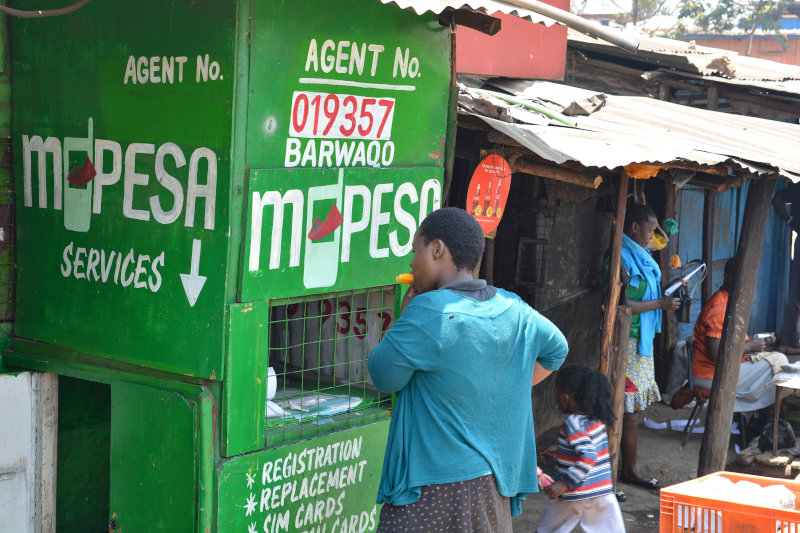There is still ample room for growth for mobile money throughout Africa, according to Sitoyo Lopokoiyit, interim CEO of M-Pesa Africa.
During a session at the recent Africa Financial Industry Summit, Lopokoiyit revealed year-on-year growth of around 20% is possible over the next five years.
“The future of mobile money in Africa is fantastic. We are leapfrogging the card generation and going straight into digital financial services and payments.”
In 2007, Kenyan mobile network operator Safaricom launched the revolutionary mobile money platform M-Pesa, which allows subscribers to transfer money between one another and deposit and withdraw cash through a network of agents. The service has since been expanded to several other African countries.
For Lopokoiyit, future growth in the fintech space resides within the provision of financial health solutions.
“On financial inclusion when M-Pesa started, it was about 23% [in Kenya]. In places like Kenya, it is [now] 84% and above; in Tanzania, it is about 70%. But while that has been really good, financial health has remained relatively low … at about 20%. In this area of fintech and mobile money, we need to start looking at areas in which we can provide savings, wealth management and insurance to be able to cushion customers on the shocks that they may have as they live their lives,” he said.
Covid-19, said Lopokoiyit, has, once again, made the impact of external shocks on financial health abundantly clear.
He wants fintech players to be more innovative in developing these solutions and finding ways to make financial products – even those such as government bonds – available to a wider range of customers.
Encouraging innovation and seeking strategic partnerships
M-Pesa is hoping to encourage this innovation by opening its platform even more to third party developers.
“How do we encourage more developers and fintechs to come into our ecosystem and innovate?” he asked. “Today in Kenya, there are 29,000 developers on our platform. I would like to see 100,000 developers across Africa use our APIs to develop innovate products and services.”
Referencing the recent announcement that Silicon Valley financial services company Stripe had acquired Nigerian start-up Paystack, Lopokoiyit explained partnerships of this nature are key for African fintech companies to get the valuations they deserve. “If you look at the talent that is being recruited from Africa by the big tech companies it shows that there is potential.”
The intention to establish M-Pesa as a super app that will feature various services such as transport, tourism, e-commerce and utility payments on one platform, was reiterated by Lopokoiyit.
He believes partners would be able to publish their offering onto the super app, immediately adding value to the M-Pesa subscriber (more choice) and providing 40 million potential customers to the partner (access to market). “I want customers to look at [the M-Pesa app] as much as they look at WhatsApp on a daily basis, or Instagram.”
Regulators are your friend
Lopokoiyit wants fintech companies and innovative start-ups to embrace engagement with regulators in their jurisdictions. “We work with them every single time. There is no product and service that we launch without the regulator. We actually have discovered it is better to, even on a concept stage, to engage the regulator.”
He further touted the importance of considering a regulator’s perspective when they fulfil their mandate to protect the consumer from systemic risk. “We are commercially driven, we are about transforming lives, but the regulators look at it from a bigger and broader scope; they interact with other regulators across the world, so they do add a lot of value,” he said.
Covid – the great accelerant
Lopokoiyit is clear about the impact Covid-19 has had on digital financial services; it has sped up adoption, as well as regulatory change and innovation.
There are three phases when looking at the impact of Covid-19, he explained. First, there was the response period from March 2020 when most countries went into hard lockdowns. During this time, various businesses, regulators and governments were looking specifically at how they could assist communities. “We worked, for example, with central banks on lowering or zero-rating transaction fees below $10 to drive more financial inclusion,” he said. Other projects included working with governments to enable disbursements of much-needed relief finance to vulnerable communities. “That showed the impact of mobile money especially in Africa.”
The second phase is one of rebuilding. “This is really critical for the future of businesses in Africa. As we open up, how do we look at SMEs and micro-SMEs; how can we help them get back to business?” he asked. Possible interventions could be in one or all of four areas: capacity building; providing working capital at affordable rates; value-added services such as accounting solutions or simplifying cross-border payments; and improving connectivity at affordable rates.
The third phase is reimagining. “We’ve seen areas such as e-commerce really accelerate in the last nine months. Somewhere like Kenya, where we expected to be in 2025, has happened now.” It is time to rethink how to enable businesses to operate in the new dispensation post-Covid-19.
As an example, he listed the number of M-Pesa merchants at 157,000 in March 2020. By September of last year, this had already grown to 170,000. “I think this shift is permanent towards the digital channels,” said Lopokoiyit.







